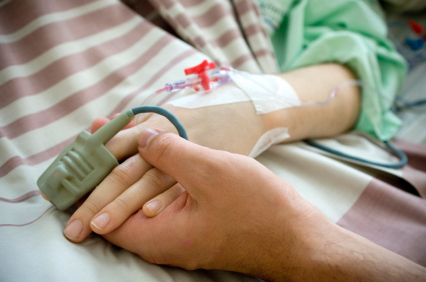5 Misconceptions About Hospice
1) Doesn’t saying “yes” to hospice mean you’re “giving up”? No, hospice does not require that you give up hope. Yet, many people see it that way. Hospice is a way to deal with the transition of death on your own terms, generally in your own home. Most people arrive at hospice too late, making the process harder, not easier, on their family.
2) Won’t my doctor know when it’s time and recommend hospice? Not necessarily. Doctors are trained to heal. They don’t want to “give up” either. Because of that, it’s important to understand what hospice is, and how it can help, if you or a loved one has a terminal illness or advanced disease. Again, most people get hospice care too late, which robs them and their family of quality time together in their last days/months.
3) Will hospice provide 24/7 continuous care? No, you need to have a dedicated caregiver. In the beginning, you will receive more visits from hospice staff, then it will drop off a bit. Towards the end, the visits will pick up again, but hospice is not around-the-clock nursing care. If you or your loved one needs that, and your family cannot arrange for a dedicated caregiver, then you need to consider other options.
4) Do I have to use my hospital’s hospice program? No, you have a choice about what hospice to use. You do not have to use the hospital’s service. Again, it’s important to plan ahead if at all possible. Some hospices are better than others. This is not a decision you should make without doing some research.
5)
Aren’t all hospices non-profit organizations derived from a religious affiliation? 75% of hospices in the US are now for-profit organizations, according to a Washington Post article from 2014. This is not necessarily a bad thing, but it does mean consumers have to be careful when choosing which agency to use. The hospice industry has much less oversight than nursing homes or other healthcare providers, which places the burden of oversight on families who are already in a very stressful situation.
All in All, Hospice Is a Very Good Thing
Most people, if given the choice, would rather die peacefully at home instead of experiencing a series of acute hospital stays or ER visits for the last few months of their life. Yet that’s what many people inadvertently do because they don’t understand hospice.
Hospice gives patients and families great comfort in a time of great stress. It shouldn’t be done at the last minute when it is too late to provide meaningful moments between the patient and family. Good hospice care can help facilitate the tension of such a big transition while making more meaningful moments possible. Because of the spiritual care and social workers, hospice is an amazing support system for those dealing with the hardest, and ultimate, transition in life.
As always, if you have any questions or concerns about estate planning, elder law, Medicaid planning, long-term care planning, Veterans benefits or end-of-life documents, please give us a call at 217-726-9200. We are more than happy to speak with you!

